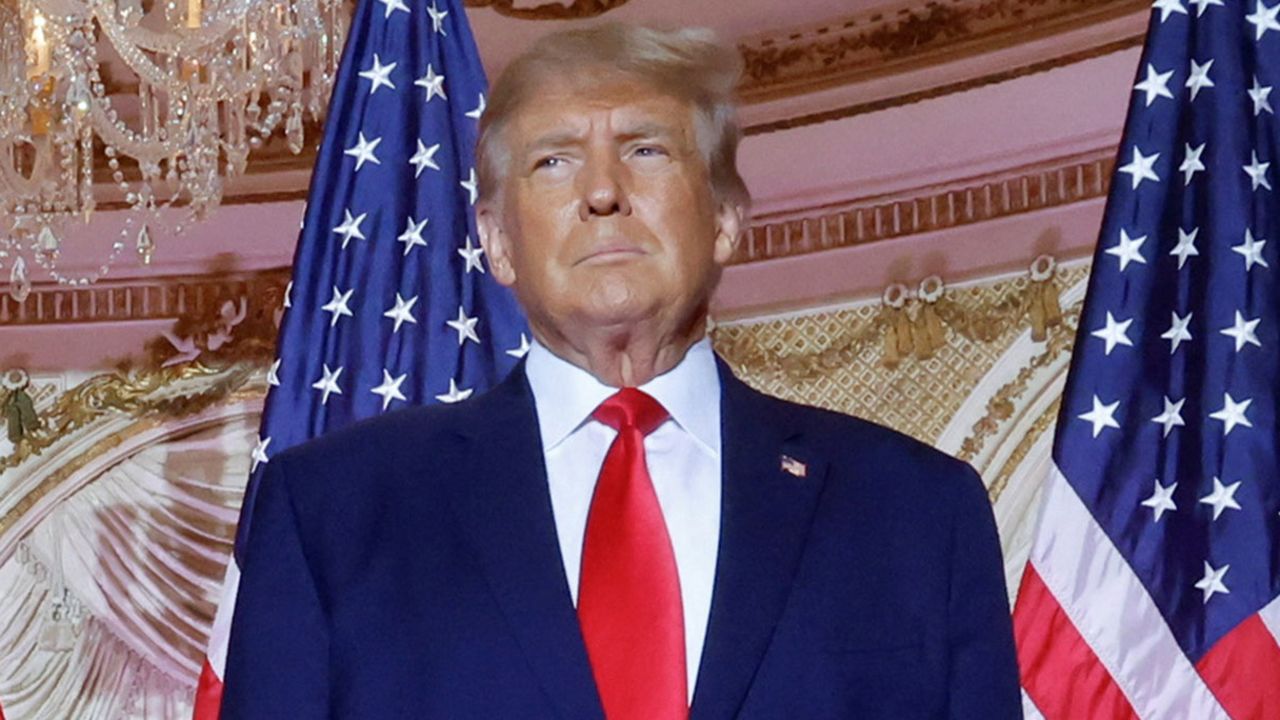Delaware Governor Condemns Fascism: A Post-Biden World Perspective

Table of Contents
The Governor's Statement: Context and Analysis
The Specific Condemnation
The Delaware Governor's condemnation of fascism, delivered in a [insert type of statement: e.g., press conference on October 26th, 2024], directly addressed [mention specific instances or events that prompted the statement, e.g., the rise of extremist groups on social media, specific acts of violence inspired by fascist ideologies]. The governor's exact words included [insert direct quote from the governor's statement]. The tone was [describe the tone: e.g., firm, resolute, and unequivocal], clearly aiming to denounce the dangerous ideologies associated with fascism. The target audience appeared to be [identify the target audience: e.g., the citizens of Delaware, the national political community, or both].
- Quote: "[Insert another relevant quote emphasizing the governor's condemnation of fascism]."
- Tone Analysis: The use of strong, direct language suggests a deliberate attempt to convey the seriousness of the threat posed by fascism.
- Target Audience: The statement’s broad dissemination through multiple media channels suggests a desire to reach a wide audience, both within and beyond Delaware.
Political Motivations
Several factors might have motivated the governor's condemnation. It could be a direct response to [mention specific events or circumstances]. Alternatively, the statement may serve as a strategic political move, designed to [explain potential strategic aims, e.g., boost the governor's approval rating, solidify support among certain demographics, or position themselves as a leader in the fight against extremism].
- Political Opponents: The statement might be aimed at distancing the governor from certain political factions or opponents who have been linked to extremist ideologies.
- Upcoming Elections: Given the proximity to [mention upcoming elections], the statement could be interpreted as an attempt to garner support from voters concerned about the rise of fascism.
- Public Image: The condemnation could serve to enhance the governor's public image, portraying them as a strong and decisive leader committed to fighting against hate and extremism.
Implications for Delaware and Beyond: A Post-Biden Era
Impact on Delaware Politics
The governor's statement is likely to significantly influence the political landscape of Delaware. It could potentially [mention potential impacts, e.g., lead to increased political polarization, foster a more unified front against extremism, or trigger legislative action addressing hate speech or extremist organizations].
- Political Polarization: The statement might exacerbate existing divisions within the state, depending on how different political groups respond.
- Legislative Implications: The governor's stance could influence the introduction and passage of bills related to combating hate speech, extremism, and domestic terrorism.
- Impact on Specific Groups: The statement's impact will vary among different political factions within Delaware. Some groups might strongly support the governor's position, while others may criticize it.
National Implications in a Post-Biden World
This condemnation carries national significance, especially in the post-Biden era. It could be viewed as [analyze potential national implications, e.g., part of a broader trend among state leaders to actively combat the rise of fascism, a counter-narrative to national trends that might be perceived as more tolerant of extremist views, or a sign of a renewed focus on civic education and combating disinformation].
- National Comparison: The statement can be compared to similar statements or actions taken by other governors or national political figures to assess whether a broader trend is emerging.
- National Conversation: The governor’s actions have the potential to revitalize and re-frame the national discussion on fascism and political extremism.
- Future Policy: This event might influence future national-level policies related to counter-terrorism, hate crime legislation, or domestic security.
Public Reaction and Media Coverage
Public Opinion
Public reaction to the governor's statement has been [describe the range of public opinions, e.g., mixed, with strong support from some and criticism from others]. Social media analysis reveals [mention key findings from social media analysis]. News articles and opinion pieces showcase a variety of perspectives, highlighting [mention contrasting viewpoints].
- Social Media Reactions: [mention specific examples of social media reactions – both positive and negative].
- Public Polls: If polls exist reflecting public opinion on the statement, cite them here.
- Criticism and Support: Analyze the arguments from both sides – those supporting and those criticizing the governor's actions.
Media Scrutiny
Major news outlets have covered the governor's condemnation, with varying degrees of emphasis and interpretation. Some news organizations framed the statement as [mention framing examples], while others highlighted [mention other framing examples].
- News Outlet Coverage: Summarize the coverage from different news sources, noting their perspectives and angles.
- Bias and Angles: Analyze whether certain biases or angles were more prominent in particular news coverage.
- Differing Interpretations: Highlight instances where different news outlets provided contrasting analyses of the governor’s statement.
Conclusion
The Delaware Governor's condemnation of fascism is a significant event with implications extending far beyond Delaware's borders. Its impact on Delaware's political landscape, its potential to shape the national conversation on extremism in a post-Biden world, and the ensuing public and media reactions all underscore its importance. The statement serves as a powerful reminder of the ongoing struggle against fascism and the necessity for vigilance against the rise of extremist ideologies. Stay informed about the ongoing fight against fascism, learn more about the political landscape of Delaware, and follow the developments stemming from the Delaware Governor’s condemnation of fascism. Share your thoughts on the implications of this bold statement – your voice matters in this crucial discussion.

Featured Posts
-
 The Rise Of Alternative Delivery How Canada Posts Issues Are Creating Opportunities
May 26, 2025
The Rise Of Alternative Delivery How Canada Posts Issues Are Creating Opportunities
May 26, 2025 -
 Rising Gold Prices A Reaction To Trumps Eu Trade Threats
May 26, 2025
Rising Gold Prices A Reaction To Trumps Eu Trade Threats
May 26, 2025 -
 Naomi Kempbell 55 Goryachie Foto S Yubileya
May 26, 2025
Naomi Kempbell 55 Goryachie Foto S Yubileya
May 26, 2025 -
 Rekordnye Podiumy Mercedes Vklad Rassella I Dostizheniya Khemiltona
May 26, 2025
Rekordnye Podiumy Mercedes Vklad Rassella I Dostizheniya Khemiltona
May 26, 2025 -
 Prediksi Klasemen Moto Gp 2025 Bisakah Marc Marquez Menang
May 26, 2025
Prediksi Klasemen Moto Gp 2025 Bisakah Marc Marquez Menang
May 26, 2025
